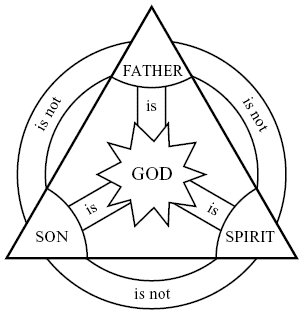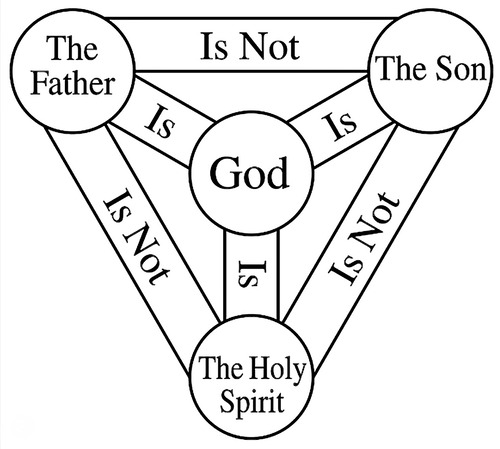Solo, Prima and Sola Scriptura: Which Do We Affirm and Why?
Some Christians use these Latin phrases interchangeably, assuming they all mean “Scripture is important.” But the distinctions between them matter enormously—they represent fundamentally different approaches to biblical authority that shape how we understand truth, interpret Scripture, and live as believers.
Solo Scriptura claims Scripture alone as the only authority, rejecting all tradition and church guidance. Prima Scriptura positions Scripture as primary but not sole authority, with church tradition serving as a secondary source of divine revelation. Sola Scriptura affirms Scripture as the ultimate and final authority for faith and practice, while recognising God has given the church teachers, creeds, and historical wisdom as helpful—though fallible—guides under Scripture’s supreme authority.
The Reformed tradition embraces Sola Scriptura as the biblical balance between these two extremes. Here’s why this matters for every Christian seeking to honour God’s Word.
THE DANGER OF SOLO SCRIPTURA: WHEN INDEPENDENCE BECOMES ISOLATION
Solo Scriptura sounds spiritual—just me and my Bible, with the Holy Spirit as my guide. What could be wrong with that? The problem lies in its radical independence from the very teachers Christ gave to His church.
Paul reminds us the ascended Christ “gave the apostles, the prophets, the evangelists, the shepherds and teachers, to equip the saints for the work of ministry” (Ephesians 4:11-12). When we reject all historical interpretation and church authority, we’re essentially saying we don’t need the gifts Christ provided for our growth and understanding.
The Ethiopian eunuch’s response to Philip captures the heart of the issue: “How can I understand unless someone guides me?” (Acts 8:31). Even this devout, educated man recognised his need for help in understanding Scripture. Solo Scriptura, despite its good intentions, often leads to interpretive chaos, endless division, and ironically creates what one theologian called “the pope of self”—making each individual the ultimate interpreter of God’s Word.
History shows us where this leads. From the radical Anabaptist excesses of the 16th century to modern hyper-individualistic interpretations that fracture churches, Solo Scriptura’s fruits are division rather than unity in truth.
THE COMPROMISE OF PRIMA SCRIPTURA: WHEN TRADITION COMPETES WITH TRUTH
Prima Scriptura initially sounds more balanced than Solo—Scripture first, but tradition matters too. Yet this approach creates a fundamental problem: it elevates human tradition to the level of divine revelation, creating competing authorities that can and do contradict Scripture.
Jesus Himself confronted this issue with the Pharisees, who had their own version of Prima Scriptura. “You leave the commandment of God and hold to the tradition of men,” He declared, explaining how their traditions actually made “void the word of God” (Mark 7:8, 13). When human tradition becomes a secondary source of divine authority rather than a helpful guide under Scripture, it inevitably begins to compete with and even override God’s clear Word.
Church history demonstrates this pattern repeatedly. Doctrines like purgatory, indulgences, and papal infallibility developed not from Scripture but from tradition elevated to scriptural status. While these traditions may have seemed helpful initially, they ultimately obscured the Gospel’s clarity and led believers away from biblical truth.
Proverbs warns us: “Every word of God proves true… Do not add to his words, lest he rebuke you and you be found a liar” (Proverbs 30:5-6). Prima Scriptura, however well-intentioned, risks adding human words to God’s perfect revelation.
THE BIBLICAL BALANCE OF SOLA SCRIPTURA
Sola Scriptura offers a third way—one that honours both Scripture’s ultimate authority and Christ’s gift of teachers to His church. This principle affirms Scripture is the ultimate, final, and sufficient authority for all matters of faith and practice, while recognising God works through faithful teachers, historical creeds, and reasonable study to help us understand His Word.
What does Sola Scriptura actually mean? It means Scripture interprets Scripture—unclear passages are illuminated by clear ones. It means church tradition serves Scripture, not the other way around. Historical creeds and confessions are helpful and even authoritative, but only insofar as they accurately reflect biblical teaching. They remain fallible and revisable when shown to contradict God’s Word.
The biblical foundation for this approach is unmistakable. Paul declares “All Scripture is breathed out by God and profitable for teaching, for reproof, for correction, and for training in righteousness, that the man of God may be complete, equipped for every good work” (2 Timothy 3:16-17). Notice Scripture makes us “complete”—we don’t need additional revelations to supplement what God has already provided.
The prophet Isaiah establishes the test: “To the law and to the testimony! If they do not speak according to this word, it is because there is no dawn in them” (Isaiah 8:20). Everything must be measured against Scripture’s standard.
The Bereans exemplify this principle beautifully. Even when the Apostle Paul taught them, “they received the word with all eagerness, examining the Scriptures daily to see if these things were so” (Acts 17:11). They didn’t practice Solo Scriptura—they listened respectfully to Paul’s apostolic teaching. Neither did they practice Prima Scriptura—they didn’t treat Paul’s words as an additional source of revelation. Instead, they tested everything against Scripture’s supreme authority.
STANDING ON THE SHOULDERS OF GIANTS
The Reformers rediscovered this biblical principle after centuries of tradition had obscured Scripture’s clarity. Luther, Calvin, and their contemporaries didn’t reject all church authority or historical wisdom. Instead, they insisted such authority must derive from and remain accountable to God’s Word.
This is why our Reformed confessions, like the Westminster Confession of Faith, explicitly state their subordination to Scripture. They represent the church’s best understanding of biblical truth, worthy of respect and careful consideration, but always revisable when shown to contradict Scripture.
Today, we face similar challenges from different directions. Progressive theology undermines biblical authority from one side, while fundamentalist retreat into Solo Scriptura creates unnecessary division from another. Some in the emerging church drift toward Prima Scriptura, seeking ancient traditions that might supplement Scripture’s perceived inadequacies.
Sola Scriptura calls us to a different path—one that humbly receives the wisdom of faithful teachers throughout history while remaining absolutely committed to Scripture’s final authority. This approach promotes both unity and truth, giving us confidence in God’s sufficient Word while keeping us humble before its perfect standard.
SOLO, PRIMA AND SOLA SCRIPTURA: SO WHICH DO WE AFFIRM?
Jesus prayed for His disciples, “Sanctify them in the truth; your word is truth” (John 17:17). In a world of competing voices and endless opinions, we can rest confidently in this reality: God’s Word is truth, sufficient for every spiritual need, clear in its essential message, and powerful to transform lives.
Sola Scriptura doesn’t make us lonely individualists or prideful traditionalists. Instead, it anchors us in the truth while connecting us to the communion of saints who have faithfully taught God’s Word throughout the ages. We can gratefully build on their foundations while remaining absolutely committed to the cornerstone—the perfect, powerful, and sufficient Word of our faithful God.
SOLO, PRIMA AND SOLA SCRIPTURA: RELATED FAQs
How do contemporary Reformed scholars distinguish between these positions? Michael Horton emphasises Sola Scriptura creates a “ministerial” rather than “magisterial” role for church authority—tradition serves Scripture rather than ruling over it. RC Sproul frequently argued Solo Scriptura leads to “private interpretation” chaos, while Sola Scriptura recognises the Spirit’s work through gifted teachers in church history. Both stress that the Reformers never intended to reject all ecclesiastical authority, but rather to subordinate it properly to Scripture’s ultimate rule.
- What about the role of natural revelation and general revelation under Sola Scriptura? Reformed theology affirms God reveals Himself through creation and conscience (Romans 1:19-20), but these sources of revelation are insufficient for salvation and spiritual growth due to sin’s noetic effects. Sola Scriptura specifically addresses special revelation—the written Word needed for faith and practice. Contemporary Reformed scholars like John Frame argue natural revelation must always be interpreted through the lens of Scripture, since our fallen reason cannot properly understand even God’s general revelation without the corrective of His written Word.
- How does Sola Scriptura handle modern discoveries in archaeology, science, or historical scholarship? Reformed scholars maintain true scientific and historical discoveries will never contradict Scripture when properly interpreted, since God is the author of both His Word and His world. However, Sola Scriptura insists Scripture’s teaching about faith, salvation, and Christian living remains the final authority regardless of contemporary academic trends. Vern Poythress emphasises that apparent conflicts usually result from either misinterpreting Scripture or overreaching scientific claims beyond empirical evidence.
What’s the difference between the “analogy of faith” principle and circular reasoning? The analogy of faith (analogia fidei) means interpreting unclear Scripture passages in light of clear ones, assuming Scripture’s internal consistency since God is its ultimate author. Critics charge this with circular reasoning, but Reformed scholars respond that all interpretive systems have starting assumptions. Kevin Vanhoozer argues treating Scripture as self-interpreting is more reasonable than imposing external philosophical frameworks, since it takes seriously the text’s own claims about divine authorship and internal harmony.
- How do we practically apply Sola Scriptura in church discipline and doctrinal disputes? Reformed polity typically involves multiple levels of church courts (sessions, presbyteries, assemblies) that can review doctrinal decisions, always with the right of appeal to Scripture against human authority. Contemporary Reformed churches like the Presbyterian Church in America require all disciplinary actions be based on clear biblical grounds, not merely traditional practices. When confessional standards conflict with fresh biblical exegesis, most Reformed denominations have processes for revising their standards, demonstrating Sola Scriptura’s practical outworking.
- What about the role of creeds and confessions—aren’t they really “tradition” that competes with Scripture? Reformed scholars distinguish between “Tradition” (capital T) as a competing source of revelation and “traditions” (lowercase t) as helpful summaries of biblical teaching. The Westminster Confession explicitly states it can err and must be revised when shown to contradict Scripture. Carl Trueman notes Reformed confessions function like “good maps”—helpful guides that can be improved, but never replacing the territory itself (Scripture). This differs fundamentally from treating church pronouncements as infallible or irreformable.
How does Sola Scriptura address the issue of biblical canon—didn’t the church determine which books belong in Scripture? This question assumes the church created the canon rather than recognising it, but Reformed scholars argue the church discovered and acknowledged books that already possessed divine authority. Kevin DeYoung explains that the church’s recognition of canonical books was based on criteria like apostolic authorship, early church acceptance, and internal evidence of divine inspiration. The Holy Spirit’s work in inspiring Scripture is the same Spirit who guided the church’s recognition of that inspiration, making this a ministerial rather than magisterial function of church authority.
SOLO, PRIMA AND SOLA SCRIPTURA: OUR RELATED POSTS
Editor’s Pick

‘Sell Everything You Have…’: Are We To Do So Literally?
When Jesus encountered the rich young ruler in Matthew 19:21, His words cut through with startling clarity: “If you want [...]

Why Jesus Said ‘It’s Better I Go Away’…
THE SUPERIOR GIFT OF THE HOLY SPIRIT “Nevertheless, I tell you the truth: it is to your advantage that I [...]

What About Those Who’ve Never Heard the Gospel?…
WILL GOD SHOW THEM MERCY ON JUDGEMENT DAY? Few questions tug at the Christian’s heart like this one. Picture the [...]

Cities of Refuge: Foreshadowing Our Safe Haven in Jesus
Picture this: A man is chopping wood with his neighbour when the axe head flies off the handle, striking and [...]

Testament to Design: The Engineering Marvel of Elephants
Picture an African elephant delicately plucking a single acacia leaf with the tip of its trunk, then moments later using [...]

Blue Whales: Mammoth Icons of Intelligent Design
Imagine an animal so massive its heart alone weighs as much as a small car, yet so precisely engineered it [...]

Do Unbelieving Kids Disqualify Church Leaders?
REFORMED PERSPECTIVES ON 1 TIMOTHY 3 AND ELDER QUALIFICATIONS Every pastor knows the heartbreak. A faithful elder who has served [...]

Why Did God Kill Onan? Wasn’t the Punishment Disproportionate?
The story of Onan in Genesis 38 troubles many. Why would God strike down a man for what seems like [...]

Is God Preparing Me for Ministry? How May I Know for Sure?
The question haunts many faithful believers. You’re serving faithfully in your local church, perhaps teaching Sunday school or leading a [...]

Ephesians 1:13: Was the Spirit’s Indwelling Promised of Old?
When Paul declares believers are “sealed with the promised Holy Spirit” in Ephesians 1:13, one word jumps off the page: [...]





